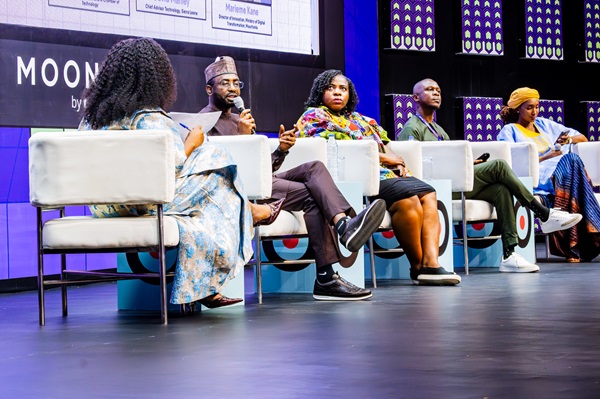
Human capital and infrastructural development have bene touted as two factors which can unlock Africa’s potential and help the continent succeed.
The director-general of the National Information Technology Development Agency (NITDA), Mallam Kashifu Abdullahi made this appeal during the second edition of the annual Moonshot Tech Conference 2024, held at the Eko Convention Centre, Lagos.
Abdullahi called on industry experts and start-ups within Africa’s technology ecosystem to collaborate closely with the government in creating robust regulations to drive human and infrastructural development. He emphasised that such collaboration is key to unlocking Africa’s immense potential.
Speaking on the panel session titled, “Building Digital Economies for the World: How African Countries are Shaping their Tech Economies to Compete Across the Continent and Globally,” Abdullahi underscored the need to balance innovation and regulation.
“Innovation turns ideas into impactful solutions,” Abdullahi explained, “but while innovation thrives on creativity, regulation serves as a guardrail to ensure stability.” He noted that at NITDA, an intelligent regulatory framework had been developed to allow for innovation while ensuring appropriate guidelines for the ecosystem.
The NITDA DG stressed the vital role of collaboration between governments and the private sector to unlock local capital, particularly patient capital, in Africa. He pointed out that Africa’s greatest asset is its young and vibrant human capital. Referring to a World Bank report, Abdullahi said, “By 2030, there will be an 85 million talent deficit globally, which, if not harnessed, could result in $8.5 trillion in unrealised annual value. Africa, with its young population, can bridge this talent gap and become the global talent factory.”
Abdullahi also highlighted the need for governments to raise awareness about the potential of the tech ecosystem not just for solving local challenges but for addressing global problems. He cited the Nigeria Startup Act, co-created with the local tech ecosystem, as an example of collaboration that encourages venture capital and supports innovation hubs.
Calling for collective action to strengthen Africa’s digital economy, Abdullahi noted the importance of building digital infrastructure to enable content sharing within Africa and facilitate data flow across borders.
Other panellists who shared valuable insights alongside Abdullahi included the CEO of the Ghana Chamber of Technology, Dr. Augustina Odame; Chief advisor for technology, Sierra Leone, David Manley and director of innovation, Ministry of Digital Transformation, Mauritania, Marieme Kane.
Abdullahi’s call for collaboration and strategic regulation is expected to pave the way for Africa’s continued growth as a competitive player in the global digital economy.


